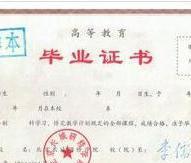Double Certification System in Chinese Higher Education
China’s unique dual certification system of degree and graduation certificates has historical roots dating back to the 1950s. While some advocate for merging them like Western countries, recent legislation suggests this system will likely continue.

The separation of academic degrees and graduation certificates in Chinese higher education represents a distinctive characteristic of China’s education system. While most Western countries issue a single certificate that serves both purposes, China’s dual certification approach has deep historical and practical significance.
This system emerged through several historical phases. During the Republic of China period (1912-1949), universities followed the American model, issuing a single certificate. After 1949, China gradually moved away from this approach, separating academic degrees from graduation certificates. The current dual system was formally established in the 1980s and has continued with brief exceptions.
The two certificates serve different purposes. A graduation certificate (毕业证) verifies completion of required coursework and academic programs, while a degree certificate (学位证) specifically recognizes academic or professional competency levels. This distinction becomes particularly important in several scenarios:
For undergraduate education, students who complete course requirements but fail to meet degree standards may receive only a graduation certificate. This situation, known as “single certification,” differs from the preferred “double certification” where students receive both documents.
In graduate education, particularly at the doctoral level, the distinction becomes even more crucial. Some doctoral candidates may complete their studies and receive a graduation certificate but fail to meet the rigorous standards for a doctoral degree due to insufficient research achievements or unsuccessful dissertation defenses.
The recent implementation of China’s new Academic Degree Law in 2024 further reinforces this dual system. The law strengthens quality assurance measures for academic degrees and introduces more stringent requirements for degree conferral. This legislation suggests that rather than moving toward consolidation, China is reinforcing the separation between academic degrees and graduation certificates.
This dual certification system also provides important flexibility. In cases where academic misconduct is discovered after graduation, universities can revoke the degree certificate while maintaining the validity of the graduation certificate, acknowledging the student’s completion of coursework while withdrawing recognition of their academic achievements.
The system’s continued existence reflects China’s emphasis on maintaining high academic standards while recognizing educational completion. Despite occasional calls for simplification, the dual certification approach appears firmly established in Chinese higher education, supported by both legal framework and institutional practice.